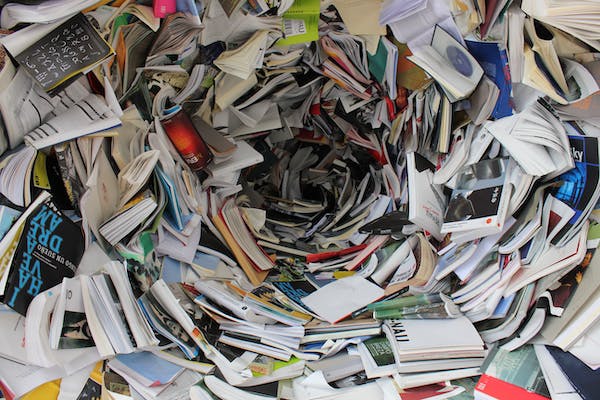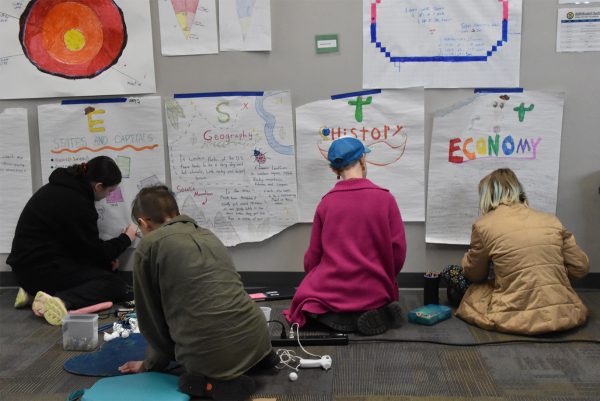Should Schools Start Limiting the Use of Paper?

With the school year starting once again, printers are being put back to work in the schools. In the US alone, billions of sheets of paper are used for each school year—meaning billions of trees are cut down. I suppose students don’t think about it, but every worksheet, work book, handout, test, and textbook we use will contribute to this number. Even when preparing for back to school, think about how many notebooks students are buying to prepare for the school year. I know that considering this is a school paper, this may be a bit hypocritical, but let’s look at the facts about the effects paper has on our environment.
First off, why do people think paper should be limited? The first thing that pops into people’s minds when I ask this is typically deforestation, but that isn’t the only factor that harms the environment when it comes to manufacturing paper. Gasses such as carbon dioxide, nitrogen dioxide, and sulfur dioxide are being released into the air daily due to paper mills, causing air pollution and acid rain. Our water isn’t safe either, with waste from these paper mills going into our water sources. It’s not just the paper itself that’s harmful – the printing ink is too. The ink that is used in printers contains several toxic chemicals that aren’t safe for the environment or for humans. One ingredient in these ink cartridges is the environment’s worst enemy: oil. Even when oil isn’t burned, it’s still destructive to the environment, poisoning the ecosystem.
Going back to deforestation, while it isn’t the only consequence to producing paper, it’s a big one. Deforestation leads to climate change, acidic oceans, flooding, dry lands, extinction, and more. With this in mind, remember how I mentioned in the first paragraph that billions of trees are being cut down for the school year? It’s only a matter of time before these environmental effects start catching up to us, if they haven’t already.
Hypothetically, how could we combat this as a school? Going paperless, while ideal, wouldn’t be realistic for a school, especially one as big as ours. However, reducing our use of paper is easier than you would assume. Actions as simple as double sided printing can save a lot of trees. Double sided booklets especially are much more neat and convenient rather than handing out separate worksheets everyday. Considering how we can do almost everything we use paper for on our personal learning devices, we could start using those quite a bit more.
Of course, this poses another problem when it comes to teenagers and our screen time. I know we’ve all had to hear the ‘technology is bad’ lecture but there are some good points to this argument. Technology in school, while having the potential to expand our knowledge more easily and quickly than other means, can also make the education environment feel more isolating. Student-teacher relationships can be warped and personal experience may be limited due to technology. Math, while can be done using websites such as Delta Math, would seem more trivial when you have to type out all your work rather than just writing it out on a scratch piece of paper. While tablets are always an option, a lot of schools don’t have the budget to buy them. Other side effects to using more technology in school such as bad posture, vision issues, and affected fine motor skills in children can occur. As for positive effects of paper in the classroom, paper has also been proven to make studying more efficient, as well as preventing more distractions and keeping students focused on the task at hand (unless you’re a doodler.)
Helping the environment is essential to keeping our planet healthy but how much can we do as a school? We could have a technologically advanced and eco-friendly education but risk the chance of not experiencing school the way it should be. On the other hand, continuing to use the amount of paper we do while maintaining a traditional and personal education is harming the environment. Would it be more beneficial if we had a mix of both? No matter the choice, I’m sure our education will be top notch either way.
Your donation will support the student journalists of Fargo North High School. Your contribution will allow us to resume physical printing of our newspaper for students at Fargo North!




